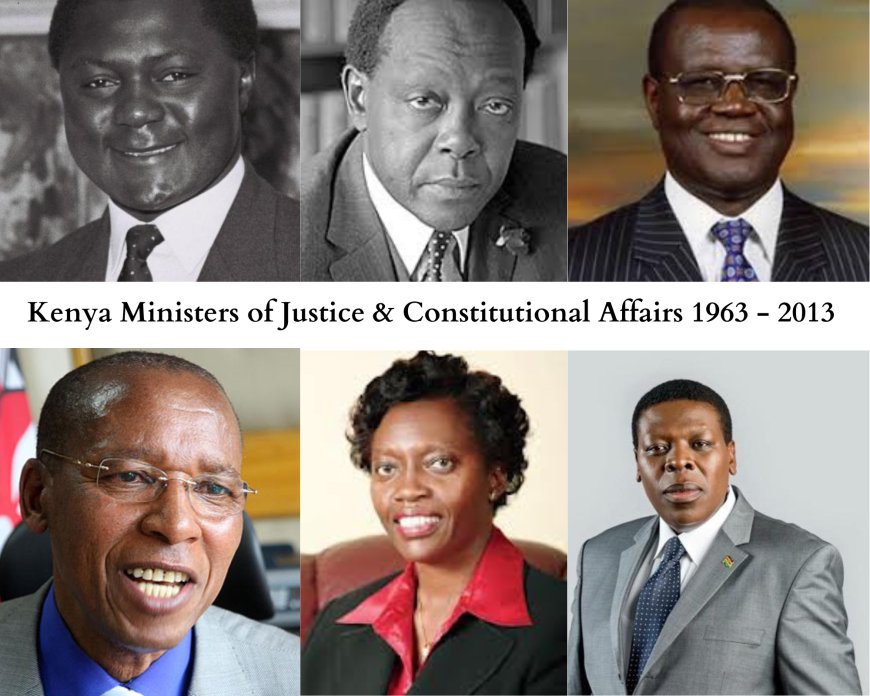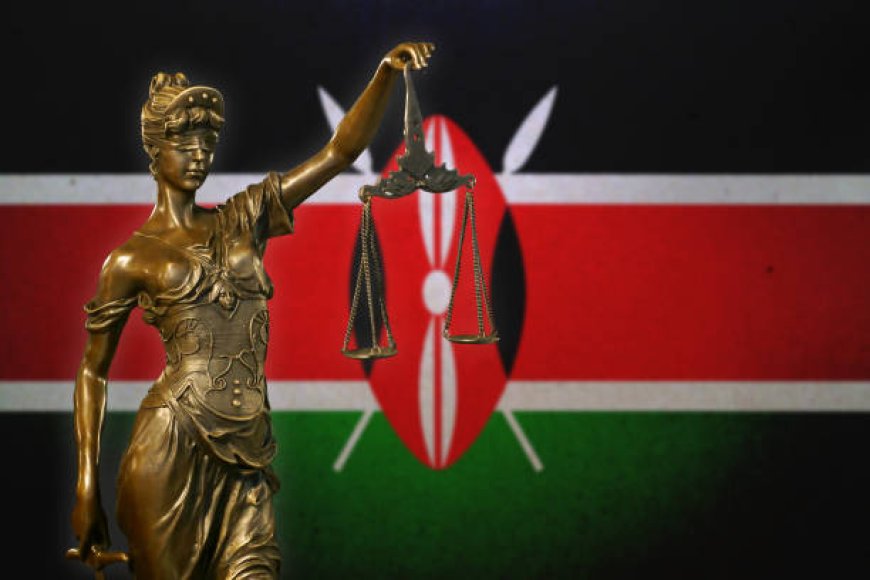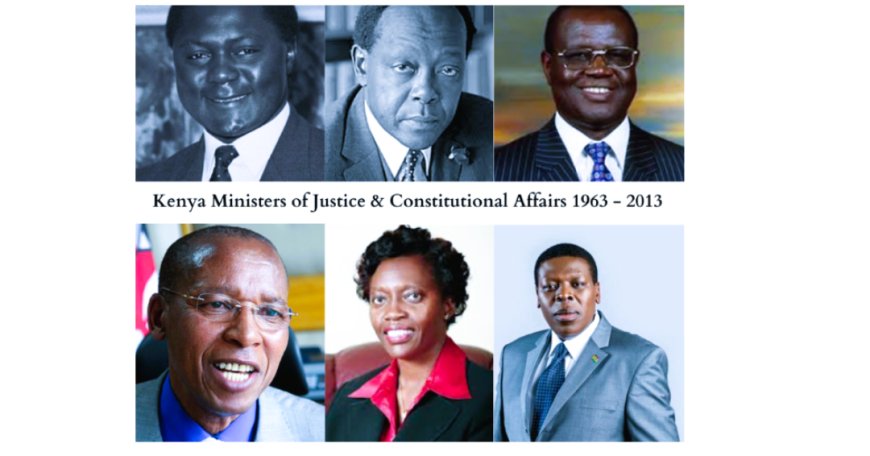In the words of Nobel Laureate Rigoberta Menchú Tum, "Without strong watchdog institutions, impunity becomes the very foundation upon which systems of corruption are built." This statement resonates profoundly with the current state of governance in Kenya, where the dismantling of the Ministry of Justice, Cohesion, and Constitutional Affairs in 2013 has had far-reaching consequences for the nation’s democracy, rule of law, and fight against corruption.
A Legacy of Justice: The Ministry’s Historical Significance
Once a cornerstone of Kenya's governance structure, the Ministry of Justice, Cohesion, and Constitutional Affairs played a pivotal role in upholding the principles of justice, equity, and constitutionalism. This docket, historically held by some of the nation’s most respected legal minds—including the Late Tom Mboya (1963-1965), the Late Charles Njonjo (1978-1982), Kiraitu Murungi (2003-2005), Martha Karua (2006-2009), the Late Mutula Kilonzo (2009-2011), Eugene Wamalwa 2011-2013) —was not merely a government department; it was a symbol of Kenya’s commitment to justice and the rule of law.

The ministry’s roles were manifold, including overseeing legal and constitutional reforms, promoting national cohesion, protecting human rights, and ensuring the accountability of public officers. In progressive democracies such as Germany, Canada, and Australia, similar ministries continue to function independently, underscoring the critical importance of maintaining a dedicated body within the executive to safeguard justice and constitutionalism.
The Consequences of Disbanding the Ministry
The abolition of the Ministry of Justice in 2013 and its merger into the Attorney General’s office, under the Department of Justice marked the beginning of a disturbing trend of declining accountability and increasing impunity. This institutional shift coincided with the emergence of numerous high-profile corruption scandals, from the Arror and Kimwarer dams scandal to the infamous NYS saga. These incidents have not only eroded public trust in the government but also highlighted the weakening of Kenya’s legal and justice systems.
Moreover, the post-2013 era has seen a worrying rise in extra-judicial killings, enforced disappearances, and the suppression of dissenting voices. The absence of a robust, independent ministry to champion justice and constitutionalism has created a vacuum where corrupt practices thrive, and those in power act with impunity, often at the expense of ordinary citizens.
The Ministry’s Role in Strengthening Democracy
During its existence, the Ministry of Justice was instrumental in promoting democracy and the rule of law in Kenya. The promulgation of the 2010 Constitution, one of the most progressive in Africa, was a testament to the ministry’s dedication to legal reforms and social justice. Under the leadership of figures like Martha Karua, the ministry spearheaded initiatives that challenged corruption and upheld the sanctity of the law. The public inquest into the assassination of Dr. Robert Ouko and others and the pursuit of accountability in the Goldenberg scandal are just a few examples of the ministry’s impactful work.
The Need for Revival
The discontinuation of the Ministry of Justice has left Kenya vulnerable to the very issues it was meant to combat—corruption, impunity, and the erosion of democratic values. The consolidation of its functions under the Attorney General’s office has diluted its effectiveness, reducing it to a mere department within the state law office rather than an autonomous body with the power to check the excesses of the executive.
To restore faith in Kenya’s governance and to protect the nation’s hard-won democratic gains, it is imperative that the Ministry of Justice, Cohesion, and Constitutional Affairs be reinstated as an independent and powerful institution within the executive branch. Such a move would signal a renewed commitment to justice, transparency, and accountability, ensuring that no individual or entity is above the law.
Conclusion
In a country where the motto "Justice be our shield and defender" is enshrined in the national anthem, the absence of a dedicated Ministry of Justice is a glaring omission.

The revival of this critical institution is not just a matter of administrative restructuring; it is a necessary step to protect Kenya’s democracy, uphold the rule of law, and combat the culture of impunity that has taken root in the absence of strong watchdog institutions. Only by reinstating the Ministry of Justice can Kenya truly live up to its ideals and ensure that justice remains the foundation upon which the nation is built.

















































































































